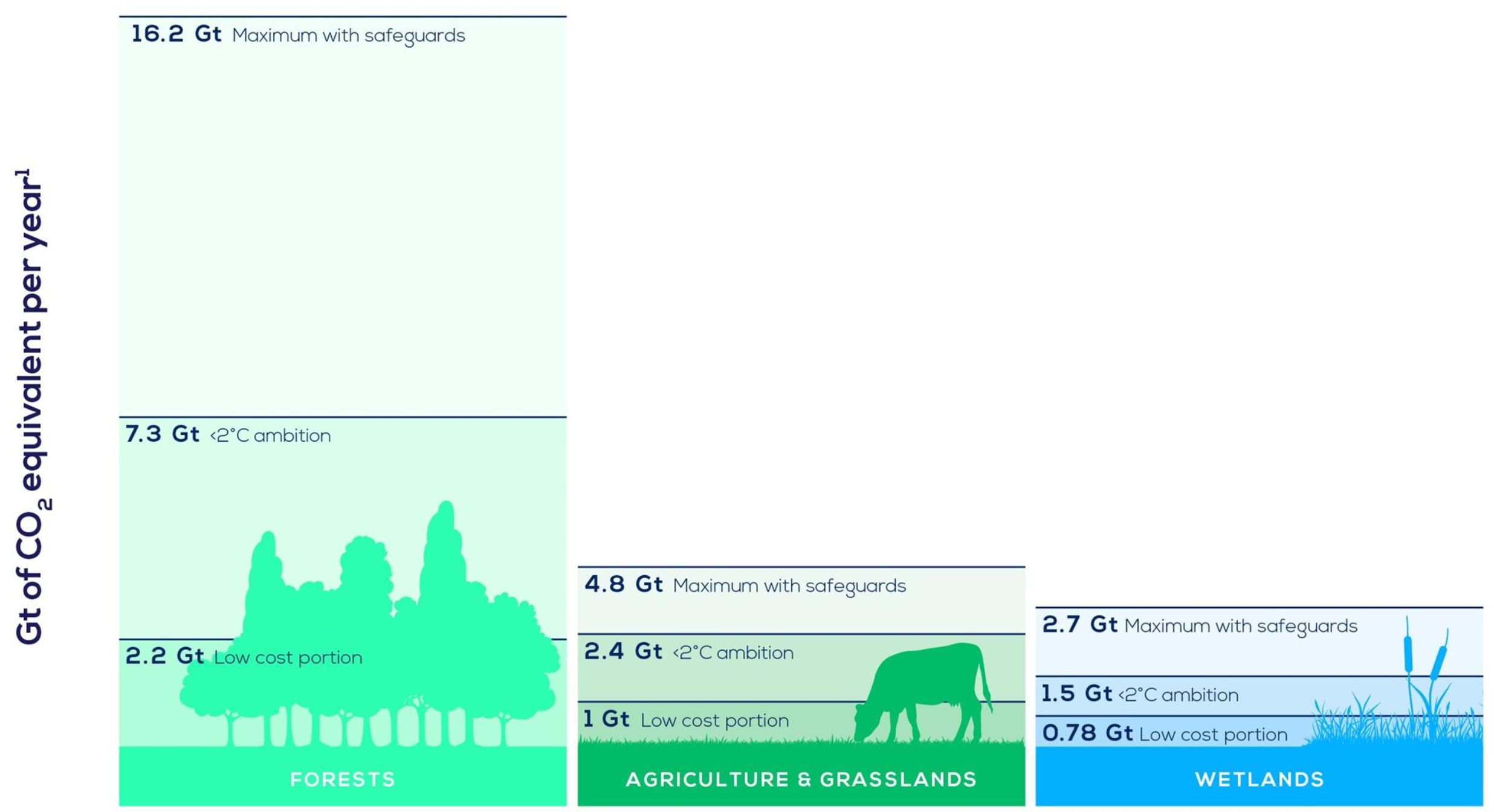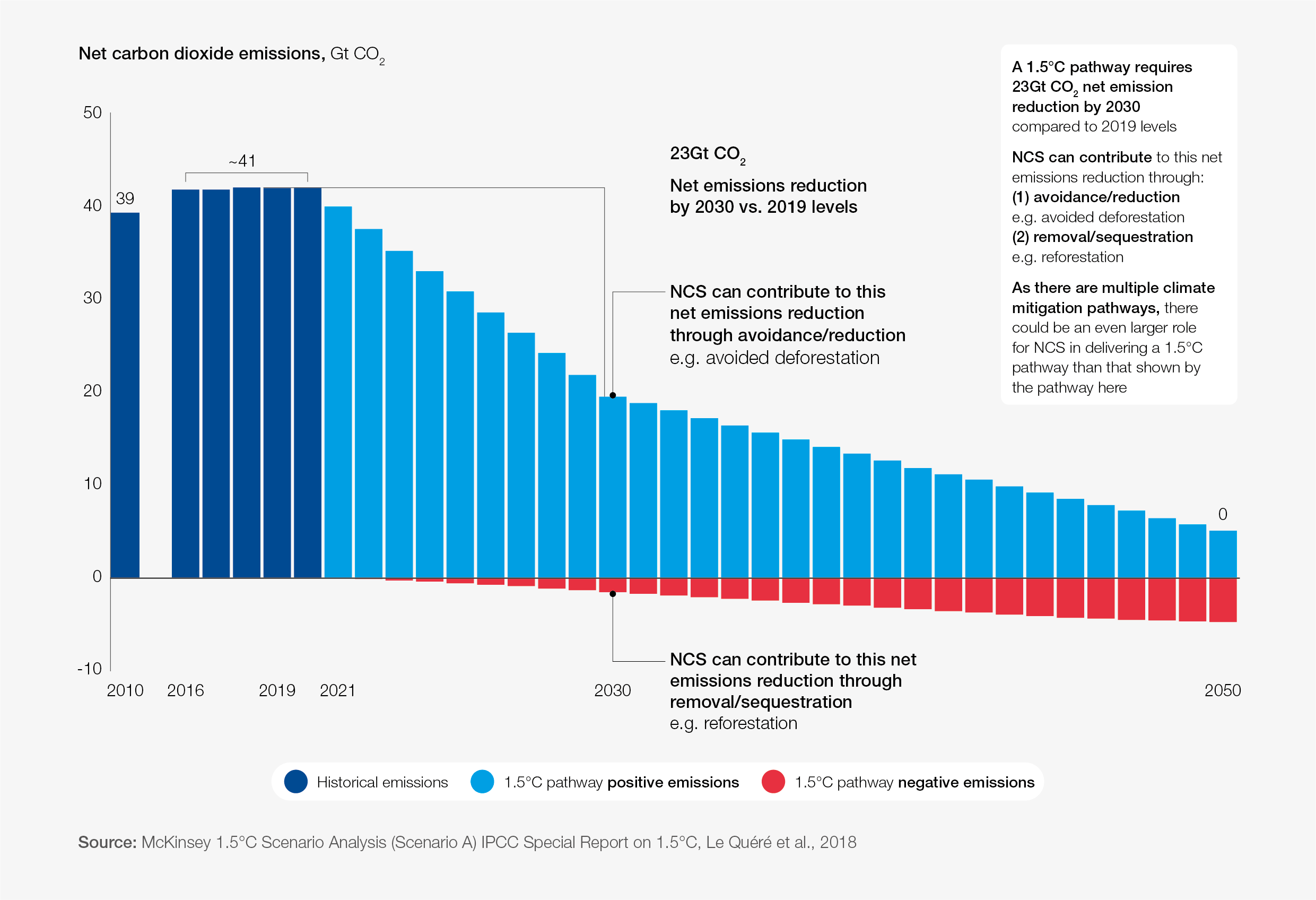How our economy could become more 'nature-positive'

Implementing nature-positive policies could generate an estimated $10 trillion in new annual business value and create 395 million jobs by 2030 Image: Tim Swaan for Unsplash

Get involved with our crowdsourced digital platform to deliver impact at scale
Stay up to date:
Climate Crisis
- A new World Economic Forum white paper sets out how our economies stand to gain from nature-positive policies.
- Implementing nature-positive policies could generate an estimated $10 trillion in new annual business value and create 395 million jobs by 2030.
- The regulatory and business environment needs to change to enable nature-positive opportunities to deliver a competitive financial return.
Governments and businesses that embrace nature-positive policies, practices and investments stand to gain, according to a new white paper from a World Economic Forum working group on scaling investments in nature. Put together with input from a cross-section of public and private sector experts who sit on the World Economic Forum’s Global Future Council on Nature-based Solutions, the paper illustrates what is possible in terms of ‘nature-positive investments’. It also sets out what needs to happen to get us there, including real-life examples from many different sectors.
It is estimated that implementing nature-positive policies could generate more than $10 trillion in new annual business value and create 395 million jobs by 2030. So why isn’t it happening at the necessary scale already? Current policy frameworks and economic models have failed to recognize the true value of nature. This is putting the world at high risk of large-scale economic and social breakdown, as detailed in the World Economic Forum's Global Risk Report, published last month.
The aim of the new white paper is to help companies and governments navigate this complex world of risk and reward when it comes to nature. It lays out two complementary pathways for the private sector specifically: one, to mainstream investments in nature that already demonstrate a positive business case, and two, where financial returns are not yet in place, to call on policy makers in governments and international institutions to create an enabling environment for investments in nature to become more financially attractive.
Nature-positive solutions can already be advantageous
We found examples of ‘nature-positive’ action across a surprising range of sectors, including mining, retail, beauty, automotive, banking, hydroelectric, agriculture, forestry and insurance. All these had a business case and could drive nature-positive outcomes, including meeting climate objectives.
The paper describes many different types of action that the private sector can take to avoid and reduce negative impacts on natural ecosystems, to restore ecosystems, and to transform established practices that have been driving nature loss to date. For example, there are companies using nature-based solutions as a way of improving their bottom line and others who are valuing natural assets and ecosystem services to drive their own operational decision making.
There are groups of companies investing in their own operations – for example using regenerative agriculture approaches – to increase the resilience of their supply chains and to help them adapt to climate change. There are also many innovative examples of managing risk, using risk-sharing mechanisms with longer-term horizons and layered income sources, including carbon finance and payments for ecosystem services.
Businesses can lead the charge for policy change
For businesses that do not see opportunities to implement nature-positive strategies right now, often the problem is a lack of an enabling environment that would provide a return on investment in nature. Current economic and financial norms and institutions do not consistently value nature’s ecosystem services, and environmental damage is not always effectively regulated or taxed.
Both the regulatory and business environment needs to change to enable nature-positive opportunities to deliver a competitive financial return. One major driver, for example, is that environmentally harmful actions are often supported with public resources, such as subsidies, that make them cheaper and more competitive than nature-positive investments in the short term. Of the $540 billion of agricultural subsidies that are handed out by governments each year, nearly all of them (87%) are price-distorting and environmentally and socially harmful.
To change this status quo, both the public and private sector have critical roles to play. Policymakers must create the right enabling environment with incentives and regulations. And this is much more likely to happen if the private sector advocates for reforms that level the playing field for nature-positive investments.
What is the World Economic Forum doing on natural climate solutions?
There are already many countries and regions taking action to use incentives and regulation to shift economic activities in nature’s favour. For example, Shenzen, China’s technology hub, became the first city to calculate its total ‘Gross Ecosystem Product’, a measure that places a value on all goods and services produced by ecosystems. South Africa has introduced a first-of-its-kind biodiversity tax incentive that allows farmers or communities to receive a fiscal benefit if they set aside land as protected areas. And the Indian state of Andhra Pradesh used a Zero Budget Natural Farming policy that has substantially improved livelihoods for farmers while also enhancing soil biodiversity.
The examples in the report, from both governments and the private sector, do not yet add up to the systemic transformation that is required to undo centuries of damage to our natural world. But they do provide evidence that the beginnings of that systemic change can happen and is already happening in some sectors and some countries. Our hope is that these examples will point the way for many thousands of others to follow.
Don't miss any update on this topic
Create a free account and access your personalized content collection with our latest publications and analyses.
License and Republishing
World Economic Forum articles may be republished in accordance with the Creative Commons Attribution-NonCommercial-NoDerivatives 4.0 International Public License, and in accordance with our Terms of Use.
The views expressed in this article are those of the author alone and not the World Economic Forum.
Related topics:
The Agenda Weekly
A weekly update of the most important issues driving the global agenda
You can unsubscribe at any time using the link in our emails. For more details, review our privacy policy.
More on Climate CrisisSee all
Mette Asmussen and Takahiro Furusaki
April 18, 2024
Laia Barbarà and Ameya Hadap
April 17, 2024
John Letzing
April 17, 2024
William Austin
April 17, 2024
Rebecca Geldard
April 17, 2024








